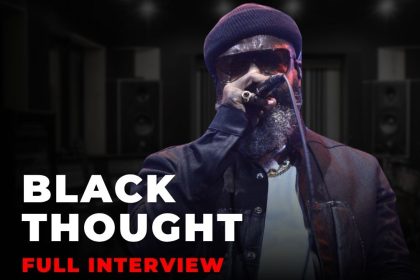Lydia Harris, former wife of Michael “Harry-O” Harris, has launched an aggressive legal campaign against rap icon Snoop Dogg and several major music industry entities. The lawsuit, filed in March 2025, demands $107 million in damages related to Harris’s claimed stake in Death Row Records, the influential hip-hop label now owned by Snoop Dogg.
The foundation of Harris’s claims
Harris asserts that she provided crucial early financial support to Death Row Records, investing $1.5 million in 1989 during the label’s formative period. Despite this substantial contribution, Harris maintains she received no compensation as the label grew into a powerhouse that helped define West Coast rap music. Her initial legal action began in 2002 when she sued former Death Row CEO Suge Knight and Death Row Records, resulting in a 2005 judgment that she claims remains unpaid.
The legal dispute highlights a critical period in hip-hop history when Death Row Records emerged as a dominant force in the music industry. Founded during a transformative era for rap music, the label would go on to launch the careers of several iconic artists and produce numerous platinum-selling albums that shaped the sound of West Coast hip-hop for generations to come.
Current legal proceedings and allegations
The expansive lawsuit names multiple defendants beyond Snoop Dogg, including Knight, along with major corporations Interscope Records, Time Warner, and Universal Music Group. Harris’s legal team argues these parties collaborated to deliberately withhold her rightful earnings from Death Row’s success.
In addition to monetary damages, Harris seeks comprehensive financial disclosure of Death Row’s operations and recovery of assets she believes are rightfully hers. The lawsuit portrays a systematic effort to deny Harris recognition and compensation for her role in establishing what became one of hip-hop’s most influential record labels.
The timing of this lawsuit coincides with a period of renewed interest in Death Row’s catalog and legacy, following Snoop Dogg’s acquisition of the label. This high-stakes legal battle threatens to complicate his plans for revitalizing the iconic brand and potentially impacts the commercial exploitation of its valuable music catalog.
Defense strategy emerges
Snoop Dogg’s legal representatives have responded forcefully, filing a motion to dismiss the lawsuit on technical and substantive grounds. They argue Harris has exceeded the statute of limitations, as more than two decades have passed since her original judgment. The defense characterizes Harris as engaging in a pattern of harassment by moving her legal challenges between different jurisdictions.
Legal experts note that cases involving decades-old music industry deals often face significant hurdles in court, particularly when dealing with complex ownership structures and previous bankruptcy proceedings. The music business landscape has transformed dramatically since Death Row’s founding, with digital streaming revolutionizing revenue models and raising new questions about legacy contracts and royalty obligations.
Complicating factors
Further complicating the case is Harris’s acknowledgment that she received what was described as a good-faith payment from Knight following Death Row Records’ 2008 bankruptcy declaration. Snoop‘s attorneys contend this settlement effectively resolved her claims, legally preventing her from pursuing additional compensation.
The defense portrays the current lawsuit as lacking merit and maintains that Harris cannot legitimately pursue claims beyond the established one-year statute of limitations applicable in this situation.
This legal conflict unfolds against the backdrop of Death Row’s troubled financial history, including complex bankruptcy proceedings and multiple changes in ownership over the decades. These transitions have created a labyrinthine paper trail of contracts, agreements, and financial transactions that courts must now untangle.
Industry-wide implications
This high-profile dispute extends beyond the immediate parties involved, potentially affecting how the music industry addresses historical contributions and ownership claims. The case highlights persistent tensions regarding proper attribution and compensation for early investors and founders of successful music enterprises.
As the legal process unfolds, industry observers will watch closely to see how courts balance protecting established business interests against ensuring fair treatment of early contributors whose efforts helped build cultural institutions like Death Row Records.
The outcome could establish important precedents regarding financial accountability in an industry often criticized for complex ownership structures that can obscure original contributions and investments. For emerging artists and investors in today’s music landscape, the resolution of this case may provide valuable guidance on protecting their interests and ensuring appropriate recognition for their roles in building successful music ventures.















